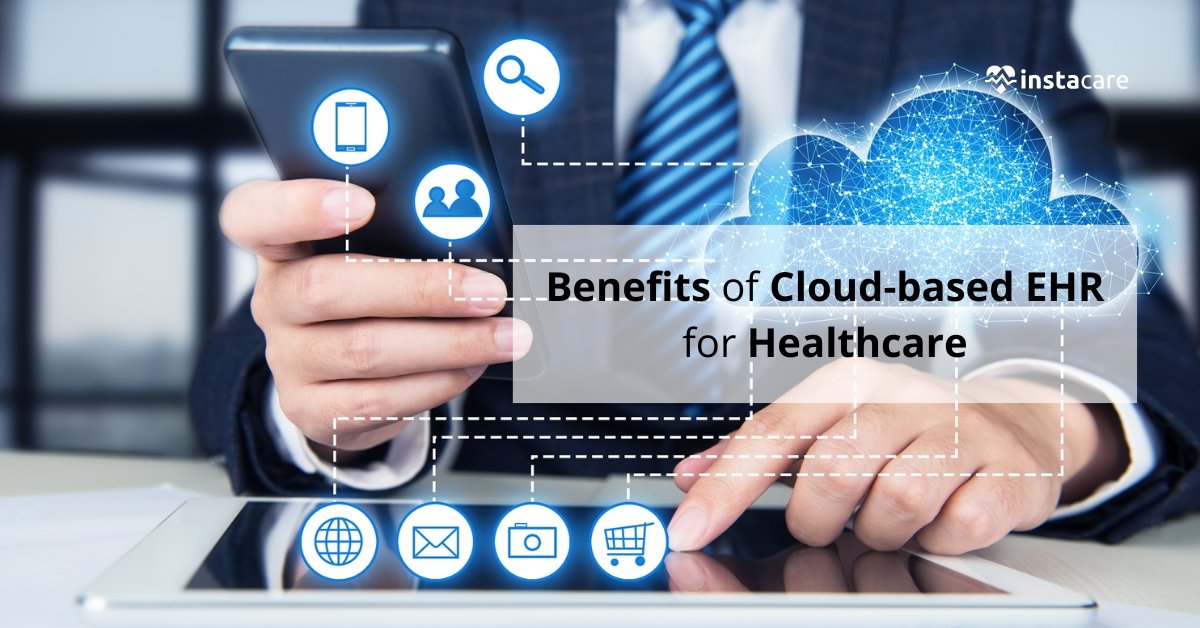Last updated on Tuesday, 8, April, 2025
Table of Contents
Benefits of Cloud-based EHR for Healthcare
With the rapid advancement of technology in healthcare, cloud-based EHR has been gaining unprecedented popularity among medical practitioners. Cloud-based EHR systems provide increased flexibility and accessibility to health information while also improving overall patient care. As such, it’s no wonder why many doctors are choosing this platform for their practice’s record system – but what other benefits does it bring? In today’s blog post, we’ll discuss how cloud-based EHR can help healthcare providers deliver better outcomes for patients.
Learn how Cloud-based EHR systems can improve data security
As medical practices and hospitals increasingly rely on electronic health records (EHRs), it’s essential to prioritize data security to protect sensitive patient information. Cloud-based EHR systems can be a powerful tool in this regard, improving security measures in several ways. First, cloud-based storage is typically more secure than on-premise infrastructure due to advanced encryption and firewalls. Additionally, cloud-based EHRs enable authorized personnel to easily access patient records from anywhere, while multi-factor authentication helps prevent unauthorized access.
By processing and storing data in the cloud, healthcare providers can reduce the risk of data theft or loss, improving patient privacy and peace of mind.
Discover how to save time and money through cloud-based storage for patient records
Are you tired of the hassle that comes with traditional methods of storing patient records? Say hello to cloud-based storage! With electronic health records (EHRs), you can securely and efficiently store all patient information in one place. Not only does this save time spent on file organization and retrieval, but it also eliminates the need for physical storage space, reducing costs and improving accessibility. Plus, with cloud-based storage, medical professionals can easily share information and coordinate care across multiple facilities. Embrace the benefits of technology and streamline your practice with EHRs today!
Explore the benefits of integrating multiple data sources into a single platform
With the vast amount of digital information available in today’s world, integrating multiple data sources into a single platform has become a critical aspect of managing data effectively. This is especially true in the healthcare industry, where relevant, up-to-date information can mean the difference between life and death. By combining various cloud-hosted health information sources, healthcare professionals can access a more comprehensive view of patients’ medical histories, lab results, and other critical information. This integration not only saves time and reduces the potential for errors but can also lead to better diagnoses, more efficient treatments, and improved patient outcomes.
Overall, the benefits of integrating multiple data sources into a single platform are undeniable, particularly in the realm of health information management.
Understand the value of using analytics to make more informed decisions quicker
In today’s fast-paced world, making informed decisions quicker is crucial to stay ahead of the game. Using analytics can significantly impact the decision-making process, especially in the healthcare sector with the emergence of virtual medical records. With this innovative technology, healthcare professionals can gather vast amounts of data, providing insight into the patient’s health history, medications, and overall care. The use of analytics allows for a quicker diagnosis, more efficient treatments, and ultimately, better outcomes. By leveraging analytics, healthcare professionals can make informed decisions quickly, leading to improved patient care, reduced healthcare costs, and more time for treatment innovation.
View More: Maximizing Efficiency with Smart Clinic Software
Learn how cloud-based EHR systems can enable remote patient monitoring
Rapid advancements in technology have revolutionized healthcare in numerous ways, and the digitization of medical records is one of them. Electronic medical documentation, or EHR, has simplified record-keeping and data management for practitioners. The benefits extend beyond the clinic and into remote patient monitoring, allowing medical professionals to track vital signs, medication intake, and other health metrics without in-person visits.
Cloud-based EHR systems cater to this need by hosting patient data securely online, accessible to medical personnel anytime, anywhere. The ease and flexibility of remote patient monitoring offered by cloud-based EHR makes healthcare more efficient, effective, and accessible.
Find out how to leverage Cloud-based EHRs to create better patient engagement
In today’s healthcare industry, patient engagement is more important than ever. With the rise of cloud-based Electronic Health Records (EHRs), healthcare providers now have an opportunity to leverage this technology to provide a more personalized and engaged experience for their patients. Cloud-based EHRs allow for secure access to patient information from anywhere, at any time, which means that providers can collaborate, share and access vital data in real-time.
This also allows for better communication between providers, patients, and their families, leading to a more efficient and accurate diagnosis and treatment plan. By embracing this technology, healthcare providers can create a more patient-centric approach to care that not only improves the quality of care but also contributes to better health outcomes.
Conclusion
Cloud-based EHR is revolutionizing the healthcare industry and unlocking extraordinary benefits for both physicians and patients alike. By greatly streamlining the workflow process, cloud-based EHR make it easier to securely store patient data, cut down on administrative duties, improve communication between staff members, better manage drugs and medical supplies, as well as helping to reduce medical errors. With such valuable benefits, it’s understandable why so many healthcare organizations are now shifting towards digital health solutions.
Furthermore, with new advancements in eHealth technology being released each year such as sophisticated predictive analytics and machine learning capabilities, it’s clear that cloud-based EHR is only going to become even more advantageous in the years to come. Ultimately, we’ve reached a tipping point in the development of cloud-based EHR technology; one that will undoubtedly shape the healthcare landscape for generations to come.



